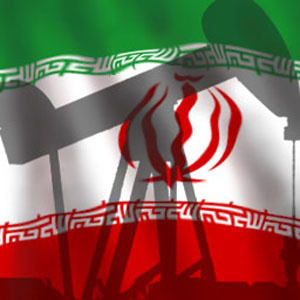Privatization or Reduction of National Iranian Oil Company’s Power

Iran’s oil Ministry has signed an agreement with Bonyad-e Mostazafan for selling the oil. Is it a step towards privatization or is it reduction of National Iranian Oil Company’s power? These two questions have appeared after the above mentioned agreement.
Privatization of the oil industry is the one of the most important elements for changing of rentier economy (economy depending on oil revenue) to liberalization. Development of the economy and reduction of state’s power are additional results of privatization and finally improving of democracy.
It seems that oil experts pay more attention to privatization due to the decline in the capacity of production and exploration of oil. There was plan for privatizing of the oil industry for more than one decade. Supreme Leader Ayatollah Khamenei has requested the government officials to speed up implementation of the policies outlined in the amendment of Article 44, and move towards economy privatization, but there are many differences and opposition opinions determinant on oil policy decision making process. In fact, high oil revenue led to the competition among groups and centers of power for taking role in Iran’s Oil Ministry.
NIOC does not have control on 77 percent of oil reservation that exists in Iran which is 10 percent of the world oil reservation. As a matter of fact, NIOC was established to control oil production and export, but after founding of Oil Ministry, its duties were in parallel with NIOC’s duties .This conflict led to the reduction of NIOC’s power.
Although reduction of NIOC’s power is an important issue, the main point is politicization of oil exploring and producing process. The result of politicization is destroying Iran’s oil diplomacy due to interference of groups and power centres. The groups and power centres started playing role in Oil Ministry regularly or irregularly in Iran’s oil diplomacy .Thus they have decided to reduce oil sale or stop negotiations with some countries which are known as enemy, or reduce of oil price and give some convention with some companies or countries which are known as friends.
Parliament, President, Supreme Economic Council, Guardian Council and Expediency Council have interfered in oil sector for questioning about the type of foreign agreements, insisting for participation of domestic companies in exploration and production of some oil fields. These interferences yielded ineffective management of oil affairs and also presence of some incomplete projects because of lack of technology in domestics companies.
On the other hand, Iran believes that oil is a strategic asset and NIOC is an instrument. However, in terms of privatization, the monitoring centers have to insist that the government is following the privatization rule. Privatization means participation of international and national investors and oil companies in oil sector. Domestic oil companies using domestic conditions have to compete with international oil companies in equal competition environment.
Monitoring centers like parliament have to force the government to spend part of oil revenue and to save rest of it for investment in international finance markets.
Thus, participation of Bonyad-e Mostazafan as non-private sector in NIOC is not considered as a step towards privatization of oil industry. In fact it can be only recognition of interference of Bonyad-e Mostazafan as a foundation that depends on a centre of power. It is clear that its duties will conflict with NIOC in long-term.
At the same time, Iran’s oil diplomacy is following Iran’s foreign policy and it has faced lack of power for making independent oil diplomacy .As a result, considering oil as the main strategic asset and oil as the main instrument in Iran’s foreign policy has made oil sector as a target of pressures and threats from Iran’s rivals. Accordingly, Iran’s competitors’ reactions towards Iran are in relation with Iran’s oil industry.
Therefore, Iran’s foreign policy uses other strategic factors to make good new international relations. Bonyad-e Mostazafan as a foundation belonging to the government is following same approach in its policy. Thus it dose not have any new development for Iran’s oil industry.
Verity, this kind of agreements is proving that there is not strategic plan for privatization and it is also making Iran far from the international standard approach.

